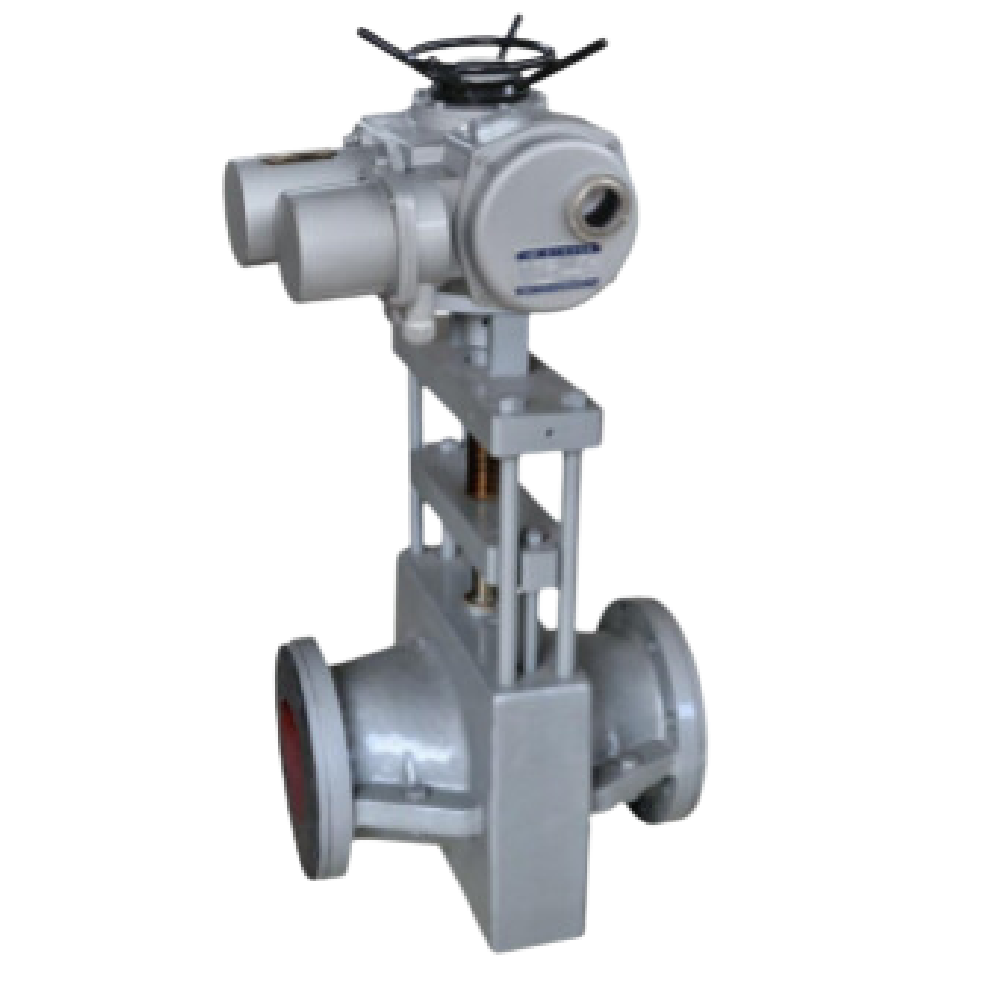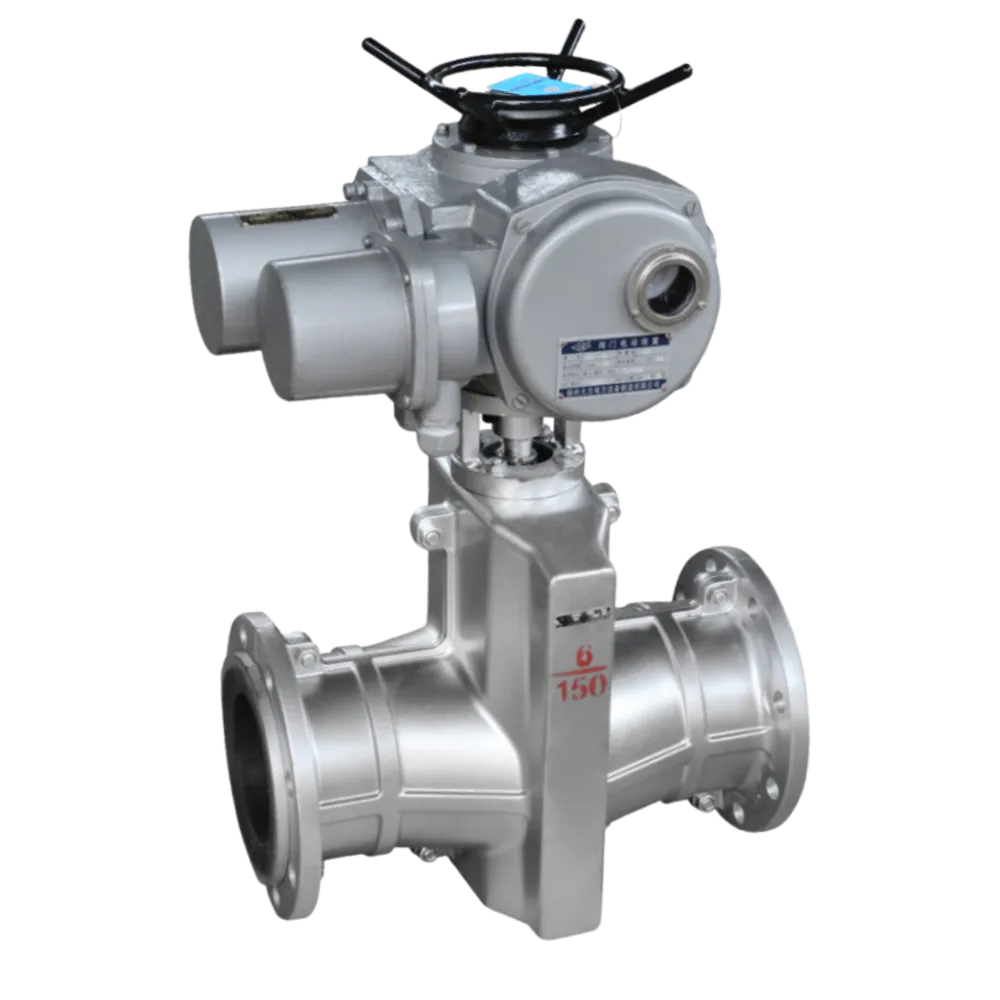


An electric pinch valve is a type of valve that uses an electric actuator to control the opening and closing of a flexible elastomer sleeve or tube, effectively regulating the flow of various media. Main of components Body, Electric Actuator, sleeve, Stem, pinch rod, side guide rod, Hand wheel etc. Working principle when rotate the […]

Electric pinch valve uses an electric actuator to control the opening and closing of a flexible elastomer sleeve or tube with configurable actuation which can be configured with most multi-turn electric actuators on the market, providing flexibility in control options. Main of components Body, sleeve, Stem, pinch rod, side guide rod, Hand wheel etc. Working […]

An electric pinch valve is a type of valve that uses an electric actuator to control the opening and closing of a flexible elastomer sleeve or tube, effectively regulating the flow of various media. Main of components Body, sleeve, Stem, pinch rod, side guide rod, Hand wheel etc. Working principle when rotate the handle clockwise, […]